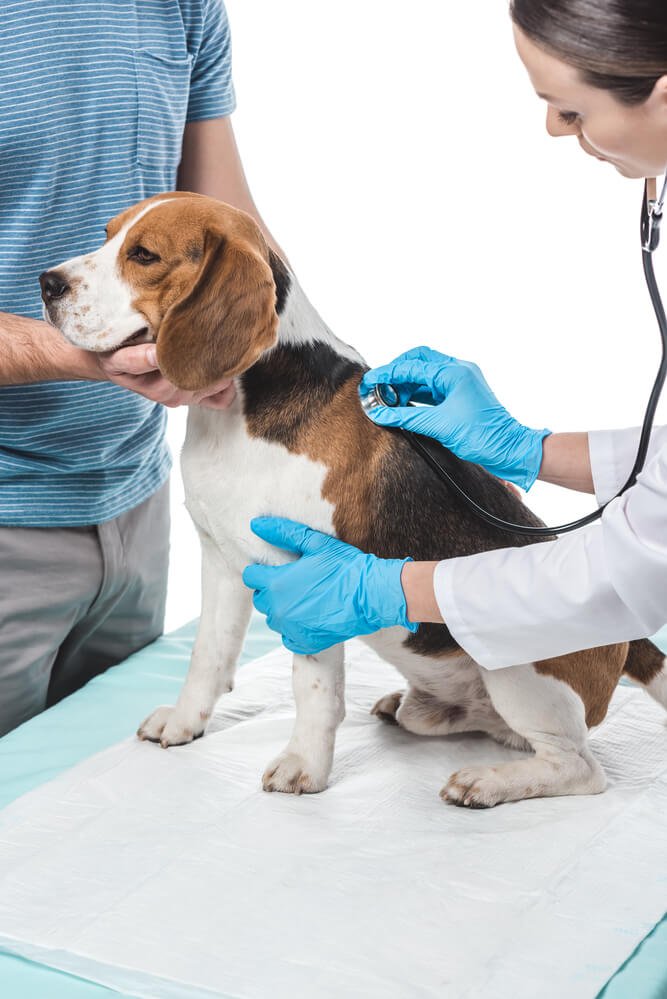Beagles are a popular breed of dog that are known for their friendly, energetic, and loyal personalities. However, Beagles are also prone to developing allergies that can affect their health and well-being. Allergies are a condition where the immune system reacts abnormally to certain substances, called allergens, that are usually harmless. Allergies can cause various symptoms in Beagles, such as itching, scratching, licking, chewing, red or inflamed skin, vomiting, diarrhea, difficulty breathing, and swelling of the face, lips, and tongue.
Common Beagle Allergies and causes
- Pollen allergy: Beagles can be allergic to pollen from trees, grasses, and weeds. Pollen allergies are more common in the spring and summer. If your Beagle is allergic to pollen, you can try to avoid exposure by keeping the dog inside during peak pollen hours. You can also give the dog a bath after spending time outside.
- Insect allergy: Some Beagles are allergic to insect bites like ticks, mites, and fleas. This can cause the dog to scratch and bite at the affected area resulting in swelling and red and itchy skin. If your Beagle is allergic to insects, you can try to avoid exposure by keeping the dog away from areas where insects are likely to be found. You can also use a tick and flea preventative to help reduce the risk of bites on your dog’s skin.
- Food allergy: be allergic to certain dog food ingredients. Corn, wheat, soy, beef, dairy, chicken, eggs and fish are some of the most common allergens. Symptoms of food allergies in Beagles include vomiting, diarrhea and itching. If your Beagle has food allergies, you will need to work with your veterinarian to find a food that is safe for the dog to eat.
- Environmental allergy: Beagles can also be allergic to certain environmental factors such as dust, mold and chemicals. These allergies can cause symptoms such as sneezing, coughing and difficulty breathing. If you suspect your dog may be allergic to something in his environment, remove the allergen from the dog’s environment.
- Contact allergy: These are allergies to substances that come into contact with the skin such as certain fabrics or cleaning products like shampoo and perfumes etc. Contact allergies can cause skin rashes or hives on the areas that touch the allergen.
Are Beagles high allergy?
According to the study findings, Beagles are not hypoallergenic dogs and are, in fact, known to produce high levels of dander compared to other small breeds. This can pose a challenge for individuals who have pet allergies or sensitivities.
How Do I Know If My Beagle has Allergies?
Some of the signs and symptoms of allergies in Beagles are:
- Itching, scratching, licking, chewing, and red or inflamed skin
- Hives, especially around the paw area
- Swelling around the face, ears, lips, eyelids, or earflaps
- Vomiting and diarrhea
- Excessive sneezing
- Chronic ear infections
- Fur loss
If your Beagle is showing any of these symptoms, it is important to seek medical attention immediately. Your veterinarian can diagnose the type and cause of the allergy and prescribe appropriate treatment.
Why is My Beagle Itching Like Crazy?
Excessive scratching in dogs is frequently caused by allergies to food or environmental triggers such as mold and pollen. Additionally, dogs may develop contact dermatitis, a skin irritation resulting from exposure to substances like soap or pesticides. Boredom or anxiety can also contribute to this behavior.
How Do I Figure Out What My Dog Is Allergic To?
A radioallergosorbent test, commonly known as a RAST test, is a blood test that can help identify specific antigens to which a dog may be allergic. This test is usually conducted to investigate atopy, a skin condition resulting from inhalant allergies, in dogs.

What To Do If My Beagle Showing Signs of Allergies?
If your Beagle is showing any signs of allergies it is important to seek medical attention immediately. Your veterinarian can diagnose the type and cause of the allergy and prescribe appropriate treatment. Treatment may include antihistamines steroids antibiotics or immunotherapy depending on the severity and type of allergy.
Conclusion
Allergies can be a serious problem for Beagles but they can be managed with proper care and prevention. By avoiding or minimizing exposure to allergens keeping your Beagle clean and healthy and following your veterinarian’s advice you can help your Beagle live a happy and comfortable life.

